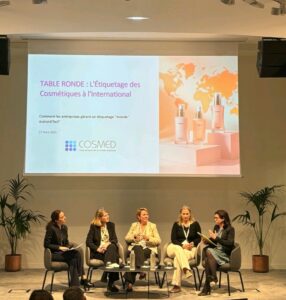Cosmetic product labelling: a strategic issue for international expansion
In a context of globalised markets, the labelling of cosmetic products is a key issue for brands wishing to expand internationally. Labels have a dual function: they must both meet the regulatory requirements of local authorities and satisfy the marketing expectations of target consumers.
An essential regulatory requirement for exporting cosmetics
Regardless of the target country, labelling is a crucial step prior to placing a product on the market. It must provide accurate information that complies with local legislation, including composition, precautions for use, recommended use, expiry date, manufacturer or importer contact details, etc. Each market has its own standards in terms of language, format, authorised claims and mandatory information. The diversity of requirements makes the idea of universal labelling unrealistic.
A leading marketing tool for success in a new market
Beyond regulatory compliance, labelling is also a way to boost your image and stand out. It highlights your brand identity, reassures consumers, and can even get them to buy your stuff. An attractive design, accurate claims tailored to consumer needs (hydration, anti-ageing, radiance, etc.) and the use of trendy terms are powerful levers for attracting consumers.
However, these marketing choices must also reflect the cultural norms of the markets. A message that is compelling in Europe may be poorly received or even misunderstood in Asia or Latin America. The effectiveness of the message therefore depends on a thorough understanding of local expectations.
A necessary country-by-country adaptation of labelling
Faced with these challenges, brands must develop a labelling strategy that takes into account the constraints of each target country. It is sometimes preferable to produce specific labels or opt for customs backlabelling rather than risk import refusal.
Country analysis by Globallians experts

On 27 March, Céline Bapt, Managing Director of Globallians, took part in a round table discussion entitled ‘Labelling: How to manage global labelling? Translations, placement of information, local packaging, lack of space, etc.’ as part of a conference organised by COSMED, the association of small and medium-sized companies in the cosmetics industry.


